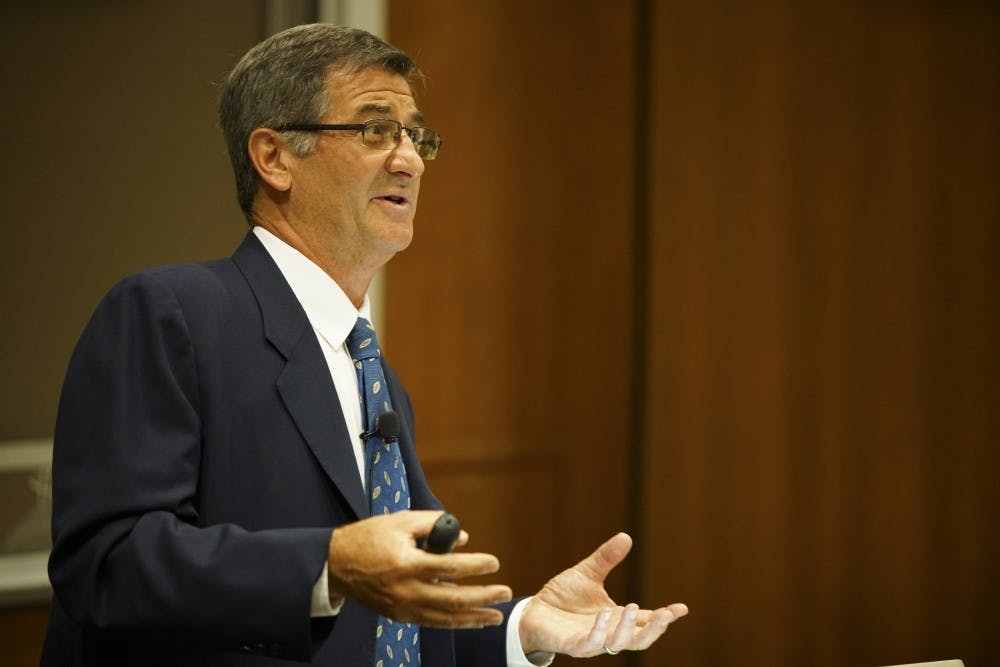After listening to Pulitzer Prize-winning journalist Edward Humes speak on the unsustainable and wasteful nature of transportation, freshman Maggie Bornhorst said she doesn’t think she will bring her car to campus as an upperclassman.
On Aug. 28, Humes, who is author of “Door to Door,” this year's Kelley School of Business Common Read Book, spoke to approximately 50 students in Hodge Hall. Humes was awarded a Pulitzer Prize in 1989 for his reporting on the military establishment in South Carolina.
“I love interacting and speaking with college students,” Humes said. “It’s an honor to have my book chosen as a college read.”
Humes received a PEN Center USA award in 1997 in research nonfiction for his book "No Matter How Loud I Shout" and is a finalist for the 2017 award in the same category for his book "Door to Door."
PEN Center USA is a branch of PEN International, the world’s leading international literary and human rights organization, according to their website.
“Door to Door” discusses the waste of the transportation industry. Humes went over the main points of his book to the students and stressed the need to find alternative methods of transportation.
The current transportation model is not sustainable and is old-fashioned, Humes said.
"Four thousand pound metal boxes, four tires on asphalt, fueled by dinosaur juice and piloted by humans that are such flawed drivers, they cause a person to be sent to the emergency room, in the U.S. once every twelve seconds and to the morgue every fifteen minutes," Humes said.
Humes listed the three up-and-coming technological advancements that will change transportation: electrification, automation and virtual 3D shipping.
Electric cars, automated driving and 3D printing are where the jobs are going to be, Humes said.
He asked the audience to try and imagine a world where you call up an app and say you need a one person-ride to work rather than rely on a gas-guzzling SUV.
A self-driving car would pull up, take you to work and drive someone else using electricity instead of gas.
“You are so lucky to be in school during this time,” Humes said. “In the next four years, we will be in the throes of a transportation transformation."
Bornhorst said she was inspired by Humes to make a transportation an important part of her future.
“He made me more interested in moving to a city where public transportation is more easily accessible,” Bornhorst said.
Freshman Cole Burchart said he was shocked by the amount of waste involved in transportation. Humes said that there are 6,000 container ships in the global fleet.
“I thought it was amazing,” Buchart said. “I had no idea that 160 container ships created as much pollution as all cars. It really put it in perspective.”






